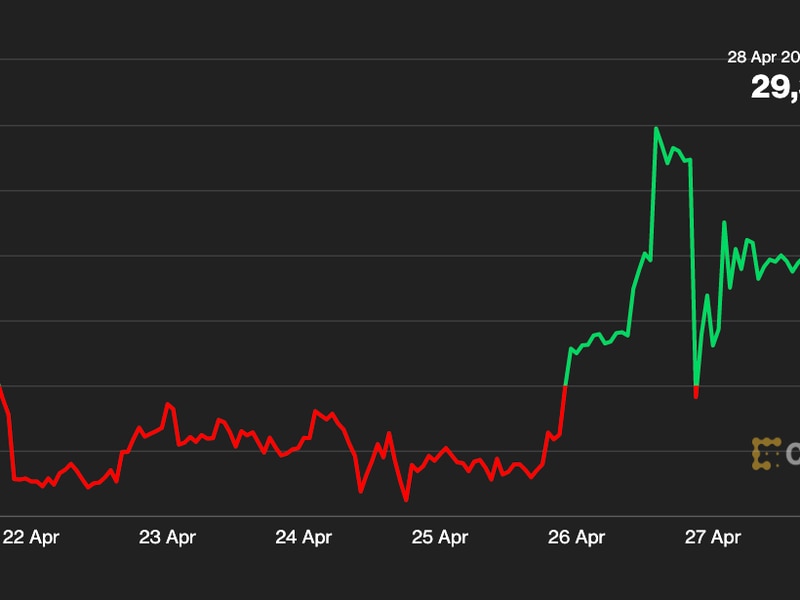Don’t Count on Decentralization to Rule Crypto Out as Security: VanEck Exec

After U.S. Securities and Exchange Commission (SEC) Chairman Jay Clayton backed a colleague’s analysis that tokens like ethereum may not be securities this week, panelists at the TOKEN2049 event are raising questions over one criteria suggested by the regulators.
Asked whether and how regulators have the power to define a threshold that William Hinman, SEC director of corporation finance, described last year as “sufficiently decentralized,” Gabor Gurbacs, Digital Asset director at VanEck, said he believes “it’s downright stupid to say if something is sufficiently decentralized, it’s not a security.”
Gurbacs’ firm has been closely working with regulators in the U.S. in its attempt to launch trading of the first bitcoin-based exchange-traded fund (ETF). He explained that, to a certain extent, even the traditional financial market could be seen as decentralized, such as the exchange-traded fund system or other capital market functions. “But they all fall under the security law,” he said.
Using the basis of being “sufficiently decentralized” to determine whether a crypto asset is a security was brought up by Hinman during a speech in June 2018, during which he said:
“If the network on which the token or coin is to function is sufficiently decentralized – where purchasers would no longer reasonably expect a person or group to carry out essential managerial or entrepreneurial efforts – the assets may not represent an investment contract.”
In a letter responding to Congressman Ted Budd and industry advocacy group Coin Center dated March 7, Clayton said he agreed with Hinman’s analysis that found ethereum, the world’s second-largest cryptocurrency, likely does not qualify as a security.
In the TOKEN2049 panel, Sandra Wu, founding partner of Hong Kong-based venture firm Origin X Capital, also weighed in, saying that while Hinman’s comments explained a stance on projects that issue tokens as a centralized organization, it does not clearly explain the case for projects like ethereum where tokens were issued from an organization that, arguably, has grown more decentralized since.
She said:
“What about everything in between (the two situations), where you have the birth of a network but it takes time (for the ownership of the tokens) to become sufficiently decentralized? The SEC has not given guidelines on everything in between.”
Gurbac also reiterated that the SEC has, in fact, still not given a formal ruling that ethereum is not a security, and that he doesn’t think there will be a decision soon. That’s also a reason why his firm exclusively focuses on pushing an ETF with bitcoin as an underlying asset, which is treated as a commodity by the commission.
“Make no mistake the chairman of the SEC never said ethereum is not a security. Director Hinman only said … right now, it may not be a security,” Gurbacs said, concluding:
“If ethereum for instance is not a security, it will set as a precedent and everyone will start raising a ton of money and say my token is something sufficiently decentralized.”
Gabor Gurbacs (center) at TOKEN2049 image via Wolfie Zhao for CoinDesk








